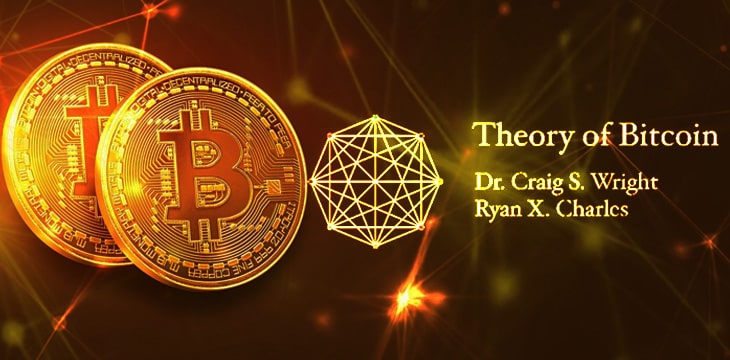|
Getting your Trinity Audio player ready...
|
At what point does a digital contract become valid? In this latest episode of “Theory of Bitcoin,” Fabriik’s Ryan X. Charles and Bitcoin creator Dr. Craig S. Wright look at how long-standing laws concerning formal deals are applied to the digital age—and how Bitcoin can automate and enforce them.
They begin by looking at an academic paper Dr. Wright wrote, titled “Electronic Contracting: New Wine in Old Bottles.” The title, he explains, is a reference to those who fraudulently sell newer wines in vintage bottles for a higher price, or claim something is different to what it actually is.
With the advent and more widespread use of the Internet in the 1990s, most major jurisdictions formulated laws to handle the new scenarios it presented (e-commerce, differences between email and web content, etc.). However Dr. Wright explains that the fundamental laws regarding contracts have remained much the same for a long time; it’s mainly the details that needed to be more specific.
Bitcoin, he says, was designed to fit within these legal frameworks, rather than require new ones.
There’s terms like “offer,” “acceptance,” “invitation to treat,” as well as the concept of “unilateral contracts.” The last item there refers to a general offer made broadly by one party—for example, a person produces something and invites everyone to buy it; the contract is accepted when someone makes a purchase. Another common example is the “Lost Dog/Reward” notice. There are rules concerning the offerer’s obligations once such a contract is made.
Dr. Wright has often referred to his initial release of Bitcoin in 2008/9 as a unilateral contract. The “offer” is for miners (processors) to validate Bitcoin blocks in return for a share of the Bitcoin block subsidy, plus transaction fees. As the unilateral offerer, he is obligated to make sure that happens. The contract itself, he says, is in the Bitcoin white paper and its original web page, which set out the rules.
Protocol changes and enforcing rules
There’s a short segment on how BTC developers, by altering the fundamental protocol rules for Bitcoin, “break” Dr. Wright’s unilateral contract—at least, by using the Bitcoin transaction database and calling the BTC network “Bitcoin.” Litecoin, despite being a fork of Bitcoin itself (with alterations), does not do this, since it uses a different name and created its own database of transactions.
The two move on to Bitcoin Script and the role it could play in following court orders or providing a link between the digital world and real-world assets/obligations. An offerer could publish a question or problem, offering a payment to someone who comes up with a solution. NLockTime transactions could allocate parts of payments to different channels, or change them as conditions changed or emerged (NLocktime was curiously deleted from the BTC protocol after Satoshi left the project).
Another curious deletion from the BTC protocol is the Alert Key, which would allow a broadcast order to freeze or reallocate UTXOs (eg: in the case of theft of misappropriation). Dr. Wright points out that protocol developers are actually fiduciaries under the law, and have obligations here.
Miners/processors are enforcers of the law rather than deciders, and their obligations would be to make sure legal alerts were followed. This is the reason (Wright cites the Pareto effect) that, over time, the number of Bitcoin nodes inevitably becomes smaller, and all are identifiable—those who don’t comply, or are unwilling to in principle, won’t stay on the network.
The main thrust of this episode reiterates a point people still don’t seem to understand: Bitcoin does not offer anything new in the legal sense, and it cannot work outside the law. As much as some have tried (and still try) to change that, it isn’t possible. Just as contracts can only be made between humans, so can laws and solutions to legal issues.
To watch previous episodes of the Theory of Bitcoin, check the Theory of Bitcoin YouTube playlist here.

 02-24-2026
02-24-2026 




